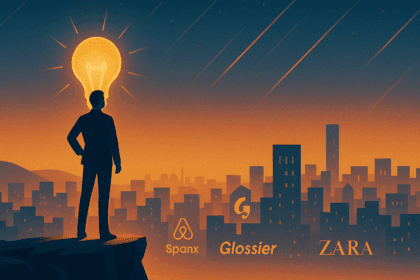Serial entrepreneurs those who build, exit, and rebuild often seem to operate on a different wavelength. Their second, third, or even fourth ventures not only scale faster but do so with sharper precision and fewer missteps. What gives them this edge? It’s not just capital or connections; it’s accumulated entrepreneurial intelligence a blend of pattern recognition, emotional endurance, and strategic timing.
In a world where 90% of startups fail within five years, the serial founder’s success rate is nearly double that of first-time founders, according to the Harvard Business Review. Experience, it turns out, compounds like interest and when harnessed strategically, it leads to exponential growth.
The Compounding Advantage of Entrepreneurial Experience
Serial founders don’t just learn from failure they codify it. Every pivot, partnership, and product launch becomes data. “After my first exit, I realized success isn’t about working harder it’s about removing uncertainty faster,” said Jessica Tan, co-founder of two Southeast Asian fintech unicorns.
This iterative mindset mirrors the way venture investors think: focus on what scales, discard what doesn’t. Serial founders apply the same logic to leadership, culture, and product development.
For instance, Reid Hoffman, who co-founded LinkedIn after his experience at PayPal, often describes startups as “experiments in scale.” His insight from the PayPal chaos the need for strong network effects early became LinkedIn’s growth engine.
Key takeaway: Experience doesn’t just reduce risk; it increases velocity. Each iteration cuts down the time between idea and impact.

Pattern Recognition: Turning Chaos Into Predictability
The first time an entrepreneur faces a supply chain crisis or investor pullout, it’s panic-inducing. The third time, it’s pattern recognition. Serial founders excel at spotting early signals that others overlook customer churn before it spikes, misaligned incentives before they fracture teams, or overbuilt features before they bloat costs.
According to CB Insights (2024), 42% of startup failures stem from misreading market demand. Seasoned founders counter this by embedding real-time analytics and customer feedback loops from day one.
Case in point: Brian Chesky’s evolution at Airbnb. After surviving the 2008 downturn, Chesky designed Airbnb’s post-pandemic rebound with built-in adaptability flexible booking, long-term stays, and decentralized teams all lessons learned from his earlier battles with market shocks.
Lesson: Serial founders don’t predict the future; they design for uncertainty.
Team and Culture: Scaling Trust, Not Just Headcount
In first ventures, founders often equate growth with hiring. In later ones, they equate it with alignment. Serial founders are obsessed with cultural fit not in the cliché sense, but as a strategic tool for resilience.
A First Round Capital study found that startups led by repeat founders raise 60% faster and retain employees 40% longer. Why? Because these leaders build cultures that outlive crises.
Elon Musk, for example, imported the iterative, engineering-first ethos from SpaceX into Tesla. Similarly, Melanie Perkins, after Canva’s early stumbles, built a “clarity culture” where decision rights and communication channels are transparent a model now studied by global HR leaders.
Takeaway: Experience teaches that culture isn’t the result of success it’s the infrastructure that enables it.
Capital Efficiency and Investor Savvy
Serial founders also learn how to raise smarter, not larger. They understand capital is a lever, not a cushion. Investors know this too: repeat founders are 2.5x more likely to secure funding in early rounds, according to PitchBook (2024).
Take Patrick Collison, who founded Stripe after running Auctomatic. His experience taught him that early profitability buys strategic autonomy. Stripe’s famously lean early years weren’t a result of frugality, they were an intentional move to retain control.
Expert insight: “Founders who’ve lived through dilution or boardroom battles tend to be capital-disciplined in their next venture,” says Sarah Guo, General Partner at Conviction VC. “They treat every round as a partnership, not a payday.”
Global Thinking From Day One
Perhaps the most striking trait of seasoned entrepreneurs is their default-global mindset. Having seen how localized success can plateau, they design for scalability early in product architecture, branding, and market entry.
Serial founders like Naveen Jain (InfoSpace, Viome) and Ola’s Bhavish Aggarwal apply a planetary lens to innovation. They don’t ask “How big is the market?” but “How fast can we make it borderless?”
This mindset aligns with a broader trend: in 2025, 68% of new startups are building for international markets within their first 18 months (Startup Genome Report).
Actionable lesson: Think global even when you’re local because scaling later is always more expensive than designing for scale now.
The Emotional Algorithm: Resilience Reimagined
While first-time founders often burn out chasing perfection, serial founders optimize for stamina. They’ve already learned that the entrepreneurial journey isn’t a sprint but a marathon punctuated by sprints.
They invest early in personal systems coaches, boundaries, and co-founder dynamics that prevent burnout. A Stanford Graduate School of Business study found that repeat founders are 30% more likely to seek mentorship or executive coaching.
As Ben Horowitz once said, “The hardest skill for a CEO is managing your own psychology.” Serial founders know this truth intimately and they build emotional durability as deliberately as they build their business models.
Conclusion: Experience as a Scalable Asset
What sets serial founders apart isn’t luck or timing, it’s transferable wisdom. They don’t reinvent the wheel; they refine the machinery. Every past venture becomes a blueprint for faster, more intelligent execution.
In an era defined by volatility, this accumulated intuition is the ultimate unfair advantage.
For entrepreneurs: Treat your experience like a compounding asset. For investors: back experience, not just ideas.
Because in the hands of a serial founder, experience doesn’t just inform the next move, it accelerates it.






